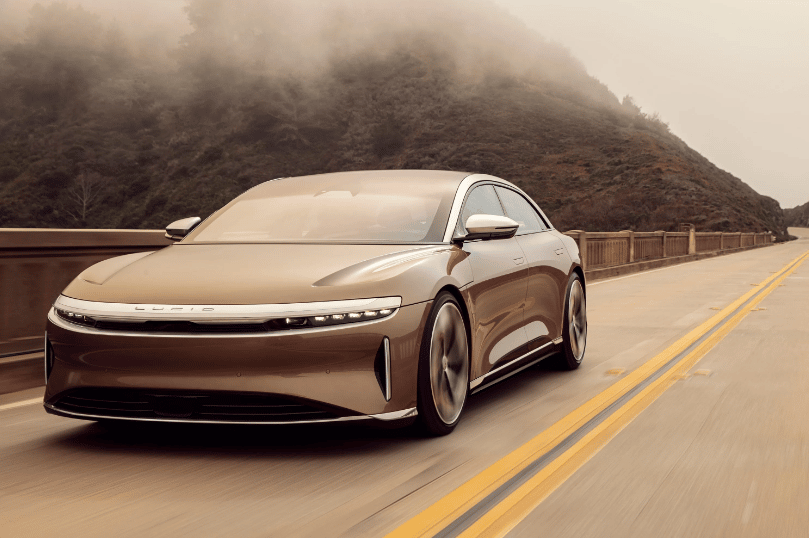Electric vehicles are becoming increasingly popular these days, and with technological advancements, they’re only getting better. But before you jump on the electric car bandwagon, it’s important to consider all of the potential downsides of this type of vehicle. There are a variety of factors that can weigh heavily in your decision-making process. So if you’re considering buying an electric car, take some time to understand what you’re getting into before taking the plunge! This article will take a look at some of the potential cons associated with purchasing an electric vehicle.
Contents
- 1 The Downsides Of Buying An Electric Car
- 2 High Initial Costs
- 3 Limited Range
- 4 Maintenance And Repair Costs
- 5 Higher Insurance Cost
- 6 Long Recharging Times
- 7 Lack Of Car Models Available
- 8 The Upsides Of Buying An Electric Car
- 9 Better For The Environment
- 10 Don’t Have To Buy Fuel
- 11 Safer
- 12 So Should You Buy An Electric Car?
The Downsides Of Buying An Electric Car
High Initial Costs

While electric cars may offer a range of advantages, such as fuel efficiency, low emissions, and fewer maintenance costs over time, the initial cost of investing in an electric car can be relatively high. On average, the initial price for a new gas-powered car is around $30,000, while that of an electric car can be upwards of $50,000.
This price difference is mainly due to the automotive battery and electric motor that powers most modern electric vehicles. This hefty gap in cost might make it difficult for some individuals to purchase an electric vehicle upfront. However, many governments have incentivized going green by providing federal tax credits for those who invest in an ecological form of transportation. This option makes it still possible for some to switch to a more sustainable option.
Limited Range

When purchasing an electric car, it is crucial to consider the long recharging time as one of the potential downsides of owning such a vehicle. The main advantage of having an electric car over a gas-powered one is that it is much more efficient and has lower running costs. However, the downside of an electric vehicle is that you will have to wait several hours before your car charges and is ready to use again.
In comparison, refueling a gas car takes much less time, as you can typically do it in just minutes. Moreover, you can refuel gas cars at any gas station, whereas finding a suitable charging station for an electric vehicle can sometimes be difficult, depending on where you live. Therefore when unaware of their precise location or not within an appropriate range, recharging your electric car may require some complex planning – something that doesn’t apply when driving a gasoline model.
Maintenance And Repair Costs

A downside to owning an electric vehicle is that maintenance and repair costs can be high. Generally, electric cars are much more expensive than their gas counterparts regarding repairs and service, as they require special tools and parts. Additionally, you may not be able to replace specific components due to the nature of the technology and engineering of electric vehicles. Instead, you will have to send them back to the factory for repair or replacement. Of course, this adds to the cost of maintaining the car, which is often higher than a similarly sized gas-powered car.
Higher Insurance Cost

One of the drawbacks of purchasing an electric car is higher insurance costs. Electric cars cost more to insure, typically at least 10% more and sometimes as much as 25% or higher than a comparable gas fuel car. This is in part because of their high replacement cost.
Some electric vehicles cost two to three times that of a comparable model gas-powered car, and this price tag gets passed on to the car’s owner through higher insurance premiums. Electric vehicles also tend to require specialized repair centers, adding to the overall expense of owning one. All these factors create a significant downside regarding the high insurance cost associated with electric vehicles.
Long Recharging Times

Recharging time may be one of the most significant downsides to owning an electric vehicle. On average, it takes 8-12 hours to completely charge a car using a level 1 home charger, while using a level 2 home charger drops that time to 4–8 hours. Comparatively, fueling up at the gas station only takes minutes – not nearly as long as waiting for an electric car’s battery pack to recharge. To someone used to the convenience of traditional fuel vehicles, this long charging time represents a significant disadvantage when considering an electric vehicle.
Lack Of Car Models Available

The lack of variety in terms of car models available when purchasing an electric vehicle can be considered a downside. With the gasoline-powered car market much larger than the electric car market, buyers may find that their choices regarding style and features are limited. This is especially true if you live in an area with few options for purchasing electric cars.
For example, one may have to choose between a Mini Cooper five-door hatchback with a combustion engine or a Tesla Model 3 sedan as the only available option in a particular area. Both are quite different from one another due to differences relating to model, size, and tech features. Luckily, manufacturers and dealerships are steadily increasing their selection of electric cars, making shopping less complicated and more enjoyable.
The Upsides Of Buying An Electric Car
Better For The Environment

Electric cars are increasingly becoming the preferred choice for drivers searching for a vehicle that offers eco-friendly and financial benefits. Electric cars are much better for the environment than gasoline vehicles since they do not release pollutants or greenhouse gasses into the air like a gas-powered engine. This significantly reduces your carbon footprint and helps to ensure that your planet can breathe cleaner air.
Don’t Have To Buy Fuel

One of the significant upsides to buying an electric vehicle is that you don’t have to buy fuel. The cost of charging an electric car battery is much less than if somebody were to pay for fuel. This can be great savings for both cash and time, as no trips to the gas station are necessary. Beyond saving money at the pump, one also doesn’t need to worry about the effects of various fossil fuels on the environment, whether contributing to climate change with emissions or creating shorter-term effects on air quality.
Safer

When you buy an electric car, you are not only making a wise investment – you are also committing to safety. Electric cars are some of the safest vehicles on the road, thanks to their low center of gravity and lack of emissions. Additionally, electric cars have many safety features that are not in traditional gasoline-powered vehicles. These features include blind spot detection, lane departure warning, and automatic emergency braking. As a result of these safety features, electric cars have a much lower risk of accidents than their gasoline-powered counterparts.
So Should You Buy An Electric Car?
If you’re considering buying an electric car, there are a lot of factors to consider. What is your daily commute like? What are the available charging stations in your area? Can you afford it? The answer to these questions will determine whether or not investing in an electric car is right for you. Researching the perks, drawbacks, and financial implications of purchasing an electric vehicle can help give you peace of mind before committing.
Take time to speak with dealerships, other owners, and mechanics about the best options for investing in an electric car so that you can make an informed decision. Ultimately, choosing whether you should buy an electric vehicle comes down to taking stock of your needs and wants and making the decision that makes the most sense!


